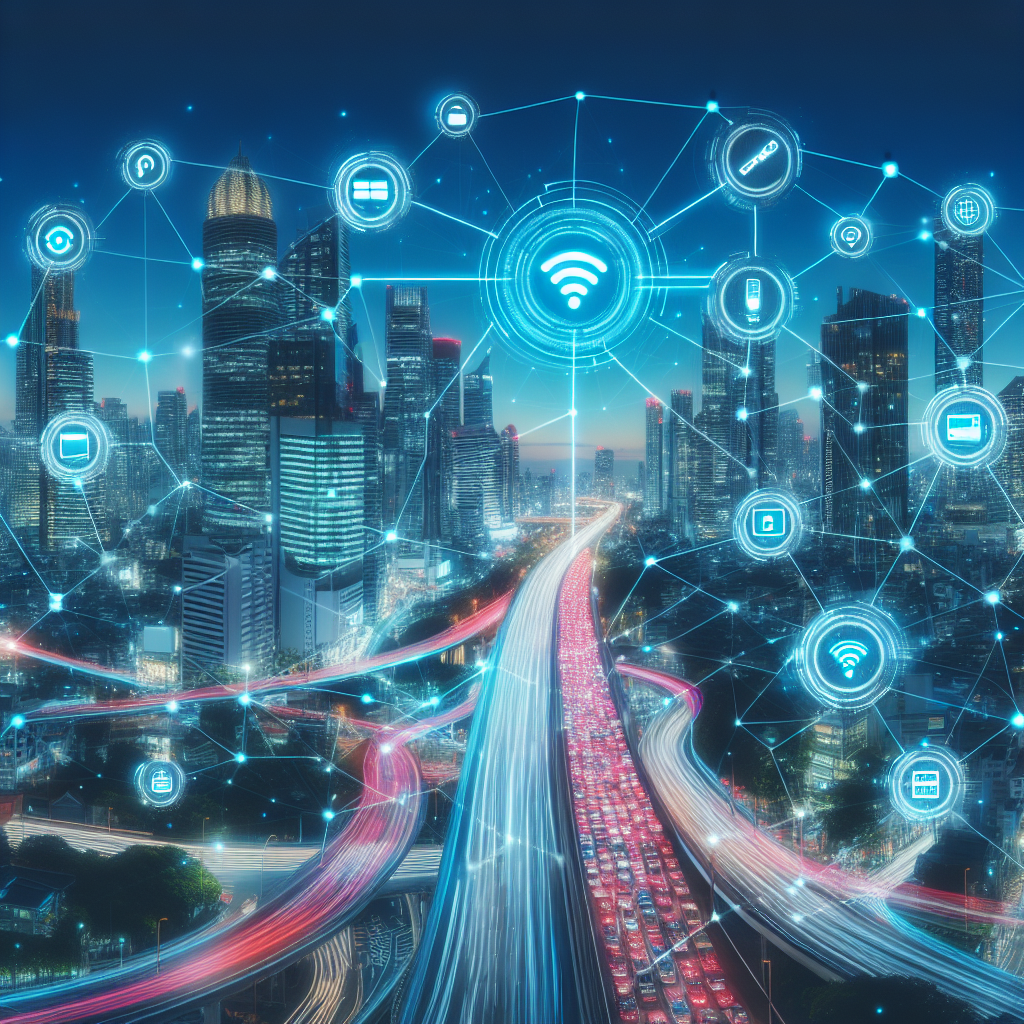Introduction
The Internet of Things (IoT) is rapidly transforming urban landscapes around the world. As cities evolve into smart cities, IoT technology plays a crucial role in enhancing connectivity, efficiency, sustainability, and overall quality of life. This article delves into the significant impact of IoT on smart cities, exploring the benefits, applications, and challenges associated with this technological evolution.
What is IoT?
The Internet of Things, commonly known as IoT, refers to a network of interconnected physical devices that communicate and exchange data with each other. These devices, equipped with sensors and software, collect and share data in real-time, enabling smarter decision-making and automated processes.
How IoT Transforms Cities into Smart Cities
1. Improved Infrastructure and Services
IoT technology enhances urban infrastructure by enabling better management of essential services such as water supply, electricity, waste management, and transportation. Smart grids, for instance, optimize energy distribution and reduce consumption, while smart water management systems detect leaks and ensure efficient water usage.
2. Enhanced Public Safety
Public safety is a top priority for smart cities, and IoT can significantly contribute to this aspect. Connected surveillance cameras, IoT-enabled emergency response systems, and real-time crime monitoring enhance security and allow for swift responses to incidents. IoT devices also facilitate better traffic management, reducing congestion and lowering accident rates.
3. Sustainable Development
Sustainability is a core component of smart cities. IoT technology aids in environmental conservation by monitoring air quality, optimizing waste collection routes, and promoting energy-efficient building designs. Smart sensors can measure pollution levels and alert authorities to take corrective actions, ensuring a cleaner and healthier urban environment.
4. Improved Transportation
One of the most noticeable impacts of IoT is in the realm of urban transportation. Smart traffic lights, connected vehicles, and real-time updates on public transport systems improve traffic flow and reduce commute times. IoT-enabled parking sensors guide drivers to available parking spots, saving time and reducing carbon emissions caused by unnecessary driving.
5. Enhanced Healthcare Services
IoT devices are revolutionizing healthcare services in smart cities. Wearable health monitors, connected medical devices, and remote patient monitoring systems allow for proactive healthcare management. These technologies enable early detection of health issues, reduce hospital visits, and improve overall public health outcomes.
6. Boosted Economy
IoT technology fosters economic growth by attracting investments and creating new business opportunities. Smart cities offer a range of benefits to businesses, including improved logistics, better customer insights, and enhanced operational efficiency. The deployment of IoT infrastructure attracts technology companies, startups, and entrepreneurs, driving innovation and economic prosperity.
Challenges and Solutions
1. Data Privacy and Security
With the proliferation of IoT devices, data privacy and security concerns loom large. The vast amounts of data generated by IoT devices are vulnerable to cyberattacks and breaches. Ensuring robust encryption, regular software updates, and stringent security protocols can mitigate these risks.
2. High Implementation Costs
Implementing IoT technology in urban settings requires significant investments in infrastructure, devices, and knowledge. Public-private partnerships, government grants, and long-term strategic planning can help alleviate financial burdens and promote widespread adoption.
3. Interoperability Issues
The seamless integration of various IoT devices and systems is crucial for the effective functioning of smart cities. Standardizing communication protocols and ensuring compatibility among different devices and platforms are essential to overcoming interoperability challenges.
4. Scalability
Scaling IoT systems to accommodate growing populations and expanding urban areas is a significant challenge. Flexible and adaptable infrastructure, along with continuous technological advancements, can address scalability concerns and ensure sustainable growth.
Case Studies
1. Barcelona, Spain
Barcelona is a prime example of a successful smart city, leveraging IoT to enhance urban living. The city has implemented smart lighting systems, intelligent waste management solutions, and a network of connected buses. These initiatives have not only improved infrastructure but also enhanced the quality of life for its citizens.
2. Singapore
Singapore is at the forefront of smart city development, with a comprehensive Smart Nation initiative. IoT solutions in Singapore include smart traffic management, real-time environmental monitoring, and connected healthcare services. These efforts have positioned Singapore as a global leader in smart city technology.
3. New York City, USA
New York City has embraced IoT to tackle urban challenges such as traffic congestion and energy consumption. The city has deployed smart traffic signals, energy-efficient building systems, and IoT-powered public safety initiatives. These measures have contributed to a more efficient and resilient urban landscape.
The Future of Smart Cities with IoT
The future of smart cities is inextricably linked to the continued advancement and integration of IoT technology. As IoT devices become more sophisticated and affordable, the potential for creating smarter, more sustainable urban environments will only grow. Innovations in artificial intelligence, machine learning, and data analytics will further enhance the capabilities of IoT, driving the evolution of smart cities on a global scale.
Conclusion
The impact of IoT on smart cities is profound and far-reaching. From improved infrastructure and public safety to sustainable development and economic growth, IoT technology is revolutionizing urban living. By addressing challenges and leveraging the potential of IoT, cities worldwide can create smarter, more connected communities, ultimately enhancing the quality of life for their residents.
